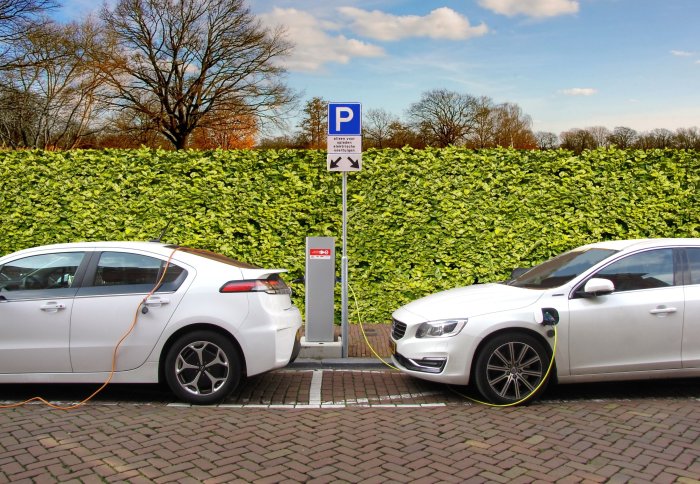Building better batteries for your future electric car

Imperial College London is working with its industrial partners on three new projects all aimed at improving the batteries used in electric vehicles.
Imperial College London is partnering with companies like Aston Martin and Williams to improve the batteries in electric vehicles. The projects, BAFTA, WIZer Batteries and Mat2Bat, are three of the 12 new innovation projects funded under the Faraday Battery Challenge.
“We are dedicated to enabling our research to have a direct impact in the real world and have a proven track record” says Dr Monica Marinescu, of the Department of Mechanical Engineering, who is leading the WIZer Batteries project at Imperial, “This collaboration led by Williams will allow us to bridge the gap between fundamental understanding and smart deployment of batteries, and mark the beginning of a new approach to the design and connectivity of electrified powertrains.”
We hope that our platform will make it easier to design the right battery for any application Dr Sam Cooper Department of Design Engineering
Dr Marinescu and her team will be working on WIZer alongside colleagues in Williams Advanced Engineering, Zapgo, Codeplay Software and PowerOasis. This project will deliver an improved system to design and manage a combination of technologies that power electric vehicles so that owners and manufacturers are getting the best out of them. A new approach to battery management system will result in many benefits including faster charging, enhanced power delivery and longer battery lifetimes.
The second project BAFTA (Battery Advances for Future Transport Applications) is a partnership with Aston Martin and Dukosi and led by Dr Billy Wu of the Department of Design Engineering. The team are working on building battery packs that are tailored for the vehicle to allow them to work at peak efficiency, maximise lifetime and manage the significant heat generated. The aim is to for develop technology that to be integrated into a variety of vehicles, including Aston Martin’s Lagonda product range.
“I am really looking forward to getting started on this partnership with Dukosi and Aston Martin,” says Dr Yatish Patel of the Department of Mechanical Engineering, who will be working on the BAFTA project, “We already have a great working relationship with both companies but this project brings together a unique combination of research skills, technical knowledge and real world applications that I know will have an impact on the batteries we see powering our electric vehicles in the future.”
This collaboration will allow us to bridge the gap between fundamental understanding and smart deployment of batteries Dr Monica Marinescu Department of Mechanical Engineering
The final project is Mat2Bat (A holistic battery design tool: From materials to packs), a collaboration with Granta Design and Denchi Power. Coordinated by Granta Design with technical leadership from researchers at the Dyson School of Design Engineering, this project aims to create a battery design tool which relates the materials selection choices all the way up to the performance of the battery packs. The tool will take a holistic view of the needs of a particular application and help guide decisions on the most suitable cells, materials and coolant systems, then represent these concepts graphically to make them more accessible to non-experts.
“Battery systems are complicated beasts and the dearth of skilled battery engineers is holding back some key innovations across many sectors, but perhaps most especially in the automotive world” says Dr Sam Cooper of the Dyson School of Design Engineering, who is leading MAT2BAT, “We hope that our platform will make it easier to design the right battery for any application and hopefully allow people to focus on innovative products rather than getting lost in the details of the power source.”
All three projects will build on early work from another recent project at the College, the EPSRC-funded, Faraday Institution Multi-Scale Modelling Fast Start.
Both BAFTA and WIZer will run for 30 months and start on 1 September 2018, with Mat2Bat running for 12 months from 1 October 2018.
Article text (excluding photos or graphics) © Imperial College London.
Photos and graphics subject to third party copyright used with permission or © Imperial College London.
Reporter
Neasan O'Neill
Faculty of Engineering